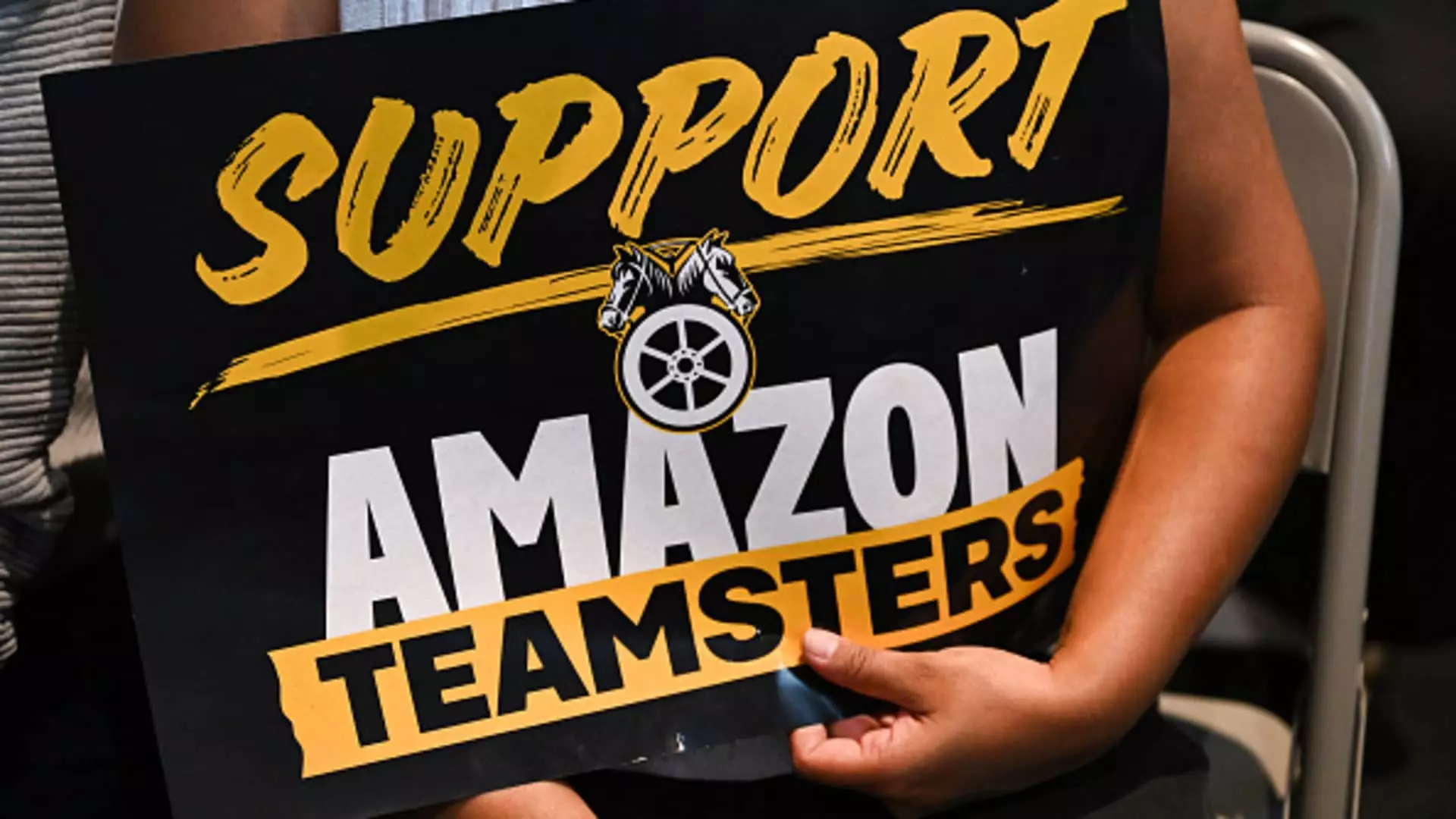In a significant development for labor rights within the gig economy, hundreds of Amazon delivery drivers in New York have voted to join the International Brotherhood of Teamsters, as announced on Monday. This action underscores a growing trend of unionization among employees who often work under precarious conditions. The drivers are affiliated with three separate delivery companies operating out of Amazon’s DBK4 facility in Queens, New York. By joining forces, these workers seek not just representation but also essential improvements to their work lives.
Contracted Firms and Collective Action
The drivers work for Cornucopia Logistics, DnA Logistics, and Champion Logistics. It’s noteworthy that the majority of drivers from each of these companies signed authorization cards, showcasing a strong desire for collective bargaining. Their decision to approach Amazon with demands for union recognition demonstrates a coordinated effort that could reshape labor relations within the company’s logistics network. Organizing efforts like these are vital in challenging the often fragmented nature of gig work, where workers can feel isolated and powerless.
Key Demands of the Drivers
The drivers’ demands go beyond seeking union recognition. They are calling for consistent schedules, adequate maintenance of delivery vehicles, and reasonable workloads. The need for such improvements indicates a broader issue within the gig economy: workers often face unpredictable hours and insufficient support, which can lead to burnout and job dissatisfaction. By articulating these specific demands, the drivers not only advocate for their immediate needs but also represent a collective cry for labor reform.
Amid increasing scrutiny and pressure from labor advocates, Amazon has recently raised wages for contracted delivery workers as part of a $2.1 billion investment strategy. While this gesture may seem like a step in the right direction, it raises questions about whether financial motivation alone can adequately address the systemic issues faced by these workers. The National Labor Relations Board (NLRB) has been investigating Amazon’s delivery partner framework, which may redefine the relationship between Amazon and its contracted drivers.
Recent determinations from the NLRB suggest that Amazon could be considered a “joint employer” for employees of its subcontracted companies. This classification carries significant implications; if upheld, it would legally compel Amazon to engage in bargaining discussions about working conditions, wages, and safety. Sean O’Brien, the Teamsters’ general president, emphasized the importance of this development, indicating that the NLRB’s findings could provide a robust legal framework for other workers looking to unionize across the country.
The recent unionization efforts by Amazon delivery drivers reflect a wider movement within the growing logistics and delivery sectors. With the Teamsters actively backing these organizing efforts, the labor landscape for Amazon employees might be on the verge of transformation. As the second-largest private employer in the U.S., Amazon will be pivotal in shaping the future of labor rights. The combination of legislative support and grassroots organizing could empower similar efforts within the gig economy, paving the way for enhanced workers’ rights and collective bargaining across various industries.


Leave a Reply